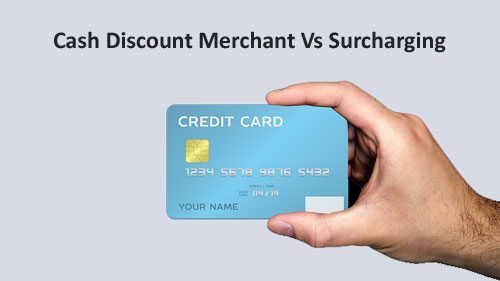 Credit card processing is one of the exclusive and costly services in today’s world, specifically for small businesses that work on a lesser budget. They may not be able to compete and bring enough revenue as compared to their competitors. When the credit card is swiped, businesses have to pay the interchange fees. This interchange may vary within 1-4% usually and sometimes may turn their profit into a significant loss for companies with tighter budgets.
Credit card processing is one of the exclusive and costly services in today’s world, specifically for small businesses that work on a lesser budget. They may not be able to compete and bring enough revenue as compared to their competitors. When the credit card is swiped, businesses have to pay the interchange fees. This interchange may vary within 1-4% usually and sometimes may turn their profit into a significant loss for companies with tighter budgets.
Most businesses having a low budget are finding a solution where they do not have to pay more interchange fees but keep accepting credit cards. This problem was solved by launching cash discount agendas, which were officially administered in 50 states in the USA. On the other hand, people still have a lot of misunderstandings related to cash discount services. They mix it up with surcharging.
We are going to discuss both programs, the cash discount services and surcharging. We will find the main difference between these two programs.
Cash Discount Services
In cash discount services, the businesses lower the cost of cash purchases, giving merchants a substitute for processing credit cards. These programs are not surcharging because they do not charge at the time of card transactions. A cash discount program is when the discount is offered on credit card prices for consumers who pay with cash.
The cash discount program works by charging a minimum customer service fee for rendering customer services and processing the transactions. This fee will be eliminated if the consumer makes purchases with cash or a gift card. The cash discount technology will recognize the service charge or the discount amount based on the mode of payment. Moreover, the official cash discount program must provide a clear slip in which the fee for service or discount payment is mentioned.
The services fee is taken by the provider who gives the credit card charges to process payments for the merchants. It eliminates the requirement for any accounting and bank statements. Businessmen will then find the credit card fee reduced automatically with only a minor fee for technology to pay after 30 days.
Pros of Cash Discount
There are many pros to a cash discount program.
- First of all, customers will get a gift as a cash discount when paying with cash.
- The cash discount will make them joyous over the fact that now they can save money with a discount. This cash discount can make a difference between implementing a sale or not for businesses with small budgets.
- The merchants’ do not have to face a lot to make this discount program. All the discount you set is up to your discretion.
Cons of Cash Discount
There are also several disadvantages for the cash discount program:
- The one big drawback is that people will spend more money shopping when they pay with a credit card.
- People will not be able to look out for money going out of their wallets so that they can spend more without explicit knowledge of the card.
Things to Consider When Launching Cash Discount Programs
- It must be legal. The provider you choose should have a clear knowledge of BBB, and they can provide proof for all state and federal laws in their processes. If you can, then ask for a sample receipt. In compliance with federal laws, the cash discount program should show the customer’s service fee.
- It must be ensured that the provider technology accepts all kinds of cards, including mobile wallets and EMV chip cards. This program doesn’t need to work on all equipment. PayLo is the provider for cash discount program POS technology that is following federal laws compliance.
- The provider should not charge hidden fees. This program must be simple and clear to the customer and does not include any such charges.
- Responsible providers give two options for fee pricing. It may be either by ticket size (flat fee) or a small percentage of the sale amount. Those businesses which have a big-ticket value need a percentage model where companies with consistent average ticket size may be able to work promptly.
- It is vital to provide merchants with training guides and videos, in-store pieces of equipment, handouts, and a helpline number to run a cash discount program successfully. It is a quality of a good provider that he will give all these things free of price.
Surcharge
A surcharge is a fee or charge added to the product’s price and is mainly added to the current tax. There are about 40 states in the USA that allow surcharge fees. These charges are added because of the reason for using a credit card. However, surcharges cannot be used on debit cards. Usually, surcharges are built on a substantial percentage of the total price of goods or services before taxes are calculated. Basically, it’s the fee that merchants can add to the credit card transactions to make up for the price the credit card associations charge them.
A card association is the network of the bank that processes payment cards of specific brands. Most of the time, card associations base surcharges up to 4% of the transaction fees. Sometimes, the merchants change the flat fee for the surcharge, whether under the range. For example, the small business might charge a $0.20 surcharge on $5 coffee which becomes 4% of the transaction value.
Pros
- The most significant benefit to credit card surcharging is that your customers are also involved in paying the fees for credit card processing. You pass this payment down to your customers.
Cons
- If the process of transaction is done through a debit card, then surcharging is not allowed for it. It is only done on credit card transactions.
- Surcharging is not authorized in most states, so it may be illegal in the area where you live.
- Customers don’t find it good to pay more money when paying through credit cards, especially in today’s age of the internet when the customer can pay without any charges. So surcharging may face a lot of customer backlash.
What is the Difference Between Surcharging and Cash Discount Services?
If you don’t go into the details of this program, you will think that both are the same program. Merchants are free to use both programs to give incentives to the customer. Transaction will be done in a way that concludes in lower charges for the vendor.
The main difference between cash discount services and surcharging is that with surcharges, the merchant adds more fees to the credit card transactions. On the other hand, in the cash discount program, the merchant provides a discount from the sale price when customers pay with cash.
Besides, surcharges are more structured, and they need authorization from credit card companies. When setting up cash discounts, businesses can be much more self-sufficient and have fewer laws and rules to worry about when they do so.
Conclusion
Overall, cash discount programs and surcharging are not a bad idea. Merchants should use these programs according to their own needs and requirements. Go through the above text and choose which suits you best, surcharging or cash discount program!




